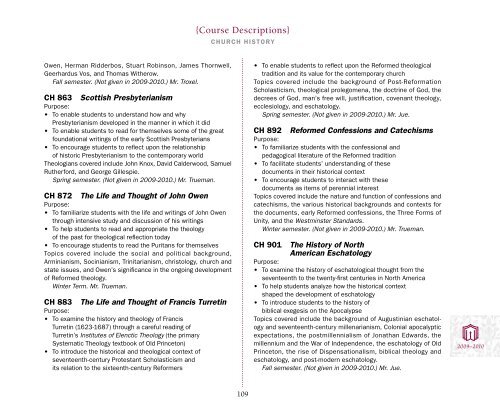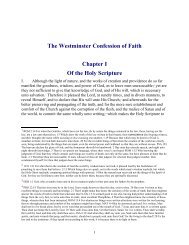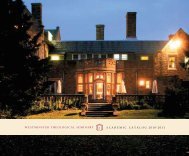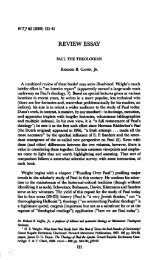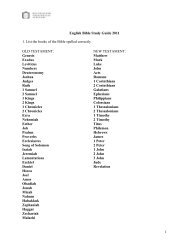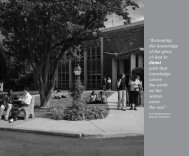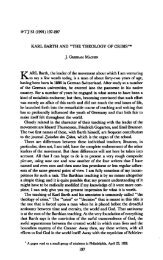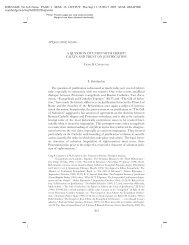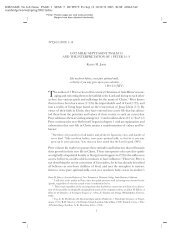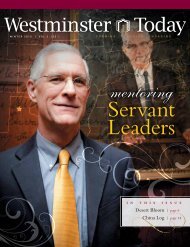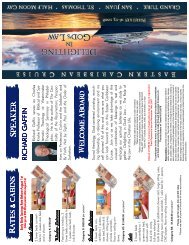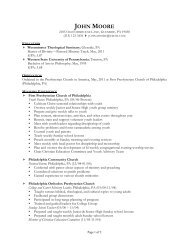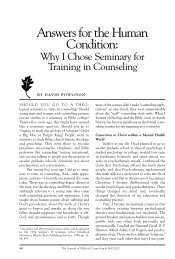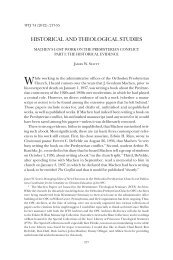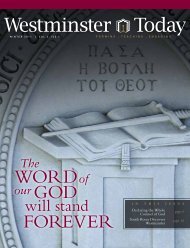2009 - 2010 Academic Catalog - Westminster Theological Seminary
2009 - 2010 Academic Catalog - Westminster Theological Seminary
2009 - 2010 Academic Catalog - Westminster Theological Seminary
Create successful ePaper yourself
Turn your PDF publications into a flip-book with our unique Google optimized e-Paper software.
{Course Descriptions}<br />
Church History<br />
Owen, Herman Ridderbos, Stuart Robinson, James Thornwell,<br />
Geerhardus Vos, and Thomas Witherow.<br />
Fall semester. (Not given in <strong>2009</strong>-<strong>2010</strong>.) Mr. Troxel.<br />
CH 863 Scottish Presbyterianism<br />
Purpose:<br />
• To enable students to understand how and why<br />
Presbyterianism developed in the manner in which it did<br />
• To enable students to read for themselves some of the great<br />
foundational writings of the early Scottish Presbyterians<br />
• To encourage students to reflect upon the relationship<br />
of historic Presbyterianism to the contemporary world<br />
Theologians covered include John Knox, David Calderwood, Samuel<br />
Rutherford, and George Gillespie.<br />
Spring semester. (Not given in <strong>2009</strong>-<strong>2010</strong>.) Mr. Trueman.<br />
CH 872 The Life and Thought of John Owen<br />
Purpose:<br />
• To familiarize students with the life and writings of John Owen<br />
through intensive study and discussion of his writings<br />
• To help students to read and appropriate the theology<br />
of the past for theological reflection today<br />
• To encourage students to read the Puritans for themselves<br />
Topics covered include the social and political background,<br />
Arminianism, Socinianism, Trinitarianism, christology, church and<br />
state issues, and Owen’s significance in the ongoing development<br />
of Reformed theology.<br />
Winter Term. Mr. Trueman.<br />
CH 883 The Life and Thought of Francis Turretin<br />
Purpose:<br />
• To examine the history and theology of Francis<br />
Turretin (1623-1687) through a careful reading of<br />
Turretin’s Institutes of Elenctic Theology (the primary<br />
Systematic Theology textbook of Old Princeton)<br />
• To introduce the historical and theological context of<br />
seventeenth-century Protestant Scholasticism and<br />
its relation to the sixteenth-century Reformers<br />
• To enable students to reflect upon the Reformed theological<br />
tradition and its value for the contemporary church<br />
Topics covered include the background of Post-Reformation<br />
Scholasticism, theological prolegomena, the doctrine of God, the<br />
decrees of God, man’s free will, justification, covenant theology,<br />
ecclesiology, and eschatology.<br />
Spring semester. (Not given in <strong>2009</strong>-<strong>2010</strong>.) Mr. Jue.<br />
CH 892 Reformed Confessions and Catechisms<br />
Purpose:<br />
• To familiarize students with the confessional and<br />
pedagogical literature of the Reformed tradition<br />
• To facilitate students’ understanding of these<br />
documents in their historical context<br />
• To encourage students to interact with these<br />
documents as items of perennial interest<br />
Topics covered include the nature and function of confessions and<br />
catechisms, the various historical backgrounds and contexts for<br />
the documents, early Reformed confessions, the Three Forms of<br />
Unity, and the <strong>Westminster</strong> Standards.<br />
Winter semester. (Not given in <strong>2009</strong>-<strong>2010</strong>.) Mr. Trueman.<br />
CH 901 The History of North<br />
American Eschatology<br />
Purpose:<br />
• To examine the history of eschatological thought from the<br />
seventeenth to the twenty-first centuries in North America<br />
• To help students analyze how the historical context<br />
shaped the development of eschatology<br />
• To introduce students to the history of<br />
biblical exegesis on the Apocalypse<br />
Topics covered include the background of Augustinian eschatology<br />
and seventeenth-century millenarianism, Colonial apocalyptic<br />
expectations, the postmillennialism of Jonathan Edwards, the<br />
millennium and the War of Independence, the eschatology of Old<br />
Princeton, the rise of Dispensationalism, biblical theology and<br />
eschatology, and post-modern eschatology.<br />
Fall semester. (Not given in <strong>2009</strong>-<strong>2010</strong>.) Mr. Jue.<br />
<strong>2009</strong>–<strong>2010</strong><br />
109


